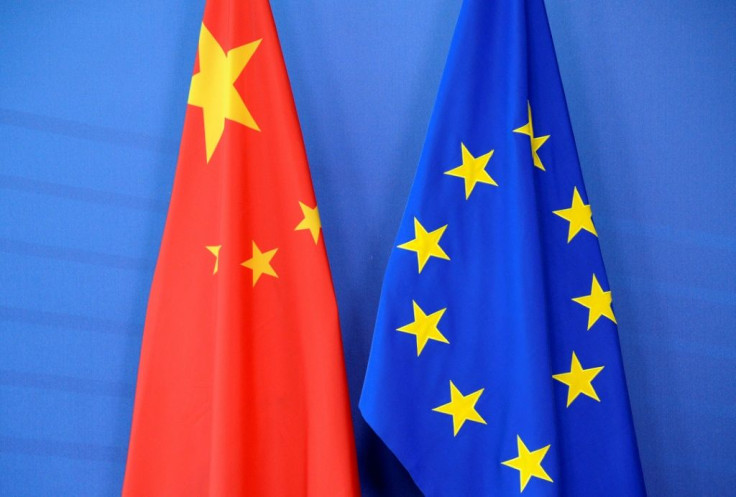EU Beefs Up Powers To Curb China As Trade Deal Prospects Cool
The European Commission on Wednesday unveiled new powers to block state-backed companies from making unfair inroads into EU markets, as the bloc seeks new ways to respond to China's rise.
The new rules, when approved by member states and European Parliament, will give EU competition authorities fresh abilities to probe foreign companies seeking to snap up EU firms or public contracts.
The rules don't specifically mention China, but they land as ties between the EU and its second biggest trading partner are at a low point after an angry exchange of tit-for-tat sanctions over human rights concerns.
The bitterness has forced Brussels to temporarily cease efforts to seek ratification of a German-backed EU-China investment deal, which had been billed as a key tool to pave the way towards smoother relations.
German Chancellor Angela Merkel, the deal's champion, on Wednesday said that despite the "difficulties", seeing the deal through would be "a very important undertaking".
The EU commission's state aid policy is part of Europe's delicate balancing act in handling China, where Brussels now wants to show a bit more strength while also keeping dialogue open.
"Unfair advantages accorded through subsidies have long been a scourge of international competition. This is why we have made it a priority to clamp down on such unfair practices," EU vice president Valdis Dombrovskis said.
"China is certainly a challenge in this context but this ... can cover pretty much any country, and any situation, if it's found that there is a distorted position in the market," he said.
Under the new rules, the bloc's powerful antitrust authority would investigate state-backed foreign companies seeking to acquire EU businesses with an annual turnover of more than 500 million euros.
State aid investigations would also be launched into subsidised companies bidding for large public contracts in Europe, such as in rail or telecommunications, worth more than 250 million euros.
If necessary, Brussels will be able to implement corrective measures to remedy possible distortions of competition, and in some cases even prohibit a merger or the award of a public contract to the company concerned.
Illegal aid could include interest-free loans, preferential tax treatment or simply direct subsidies.

The European employers' organisation BusinessEurope welcomed "a step in the right direction".
The regulation comes shortly after the commission, which manages trade policy for the EU's 27 member states, reached its surprise investment deal with Beijing in late December.
Dombrovskis, who is also the EU's trade supremo, told AFP that he had suspended efforts to promote the deal given the sanctions and poisonous political context, a move that was welcomed by MEPs.
The dispute between the EU and China escalated suddenly in March when the EU imposed sanctions on four party and regional representatives of the Xinjiang region because of their actions against the Uyghur Muslim minority.
Beijing swiftly hit back with punitive measures on European politicians and academics, including German MEPs Reinhard Buetikofer and Michael Gahler.
On Wednesday, Buetikofer said the sidelining of the investment deal was "a personal embarrassment" for Chinese President Xi Jinping who had "declared Europe a top priority" last year.
The commission also unveiled a new industrial strategy that would help the EU ease its dependence on China and others, especially after the lessons of the covid-19 pandemic.
EU industry commissioner Thierry Breton, a former tech CEO, has complained that the EU has been too naive in its approach to strategic sectors such as microchip making that depend heavily on manufacturing in Asia.
The commission said it was exploring ways to boost European independence in chip-making, as well as 5G, hydrogen energy and possibly rocket launchers and clean aviation.
The pandemic taught us that the "partner for yesterday could not be the partner of today," Breton said, in reference to trouble in gaining supplies of covid vaccines, notably from the UK.
For key sectors, "we have to sit with our European companies and decide how we want to move forward," he said.
The strategy is part of broader EU push to achieve something called "open strategic autonomy". This would strengthen Europe's position on the global stage, but without resorting to protectionism or offending like-minded partners.
© Copyright AFP 2024. All rights reserved.





















